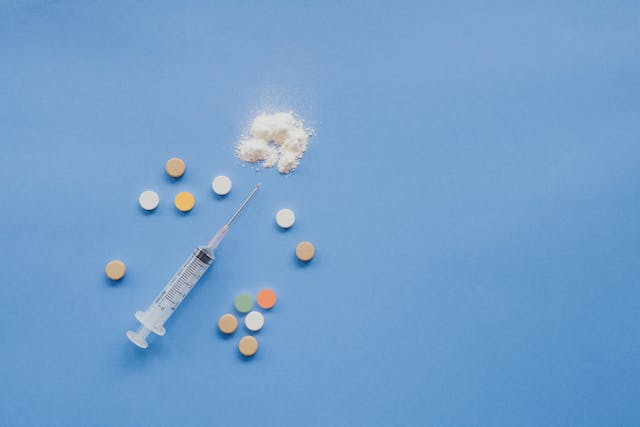
Table of Contents
The increased consumption of heroin in various parts of the world has turned out to become an epidemic. A strong understanding of the chemical compound of heroin and its effects on the human body is important to eliminate this drug to ensure a peaceful society.
Heroin: Understanding Drug Use and Addiction
A commonly found chemical used by individuals, irrespective of age, to enjoy destructive pleasure is Heroin. The addiction to this chemical is termed an epidemic due to its widespread use and the significant impact on the health of the individual due its use. In many parts of the world, heroin addiction has reached the level of an epidemic and needs a careful approach to arrest the progress and eliminate it from society.
The impact of the addiction does not get restricted to the individual and harms the individual’s family and society. It is important to understand what heroin is and its chemical structure, which can help in providing proper treatment to the affected individual for a smart recovery.
What is Heroin?
This is a chemical compound that is prepared from a substance called morphine. There are a set of plants that produce seeds that contain morphine. By processing these seeds and by carrying out various chemical processes, heroin is produced. This compound mostly affects the central nervous system and various parts of the brain.
Consuming this compound gives intense relaxation and a sense of pleasure, which makes the individual consume it more. Individuals consume this compound through different methods, such as injecting it directly into the veins or by taking it through the nose. The reaction due to this compound is very high and makes it addictive to the individuals consuming it.
History: Heroin Drug Addiction
In the early nineteenth century, this chemical was created as an alternative to morphine. This alternative was found to be safe to be used by individuals instead of morphine. However, later, it was identified that heroin has strong properties of addiction to individuals, affecting the mental and physical health of individuals.
By the twentieth century, the use of heroin became widespread in society, and various issues started popping up due to the consumption of this chemical compound. Though initially it was introduced as a safer alternative, it has now become a reason for various problems in the community. Even then, proper measure to arrest growing consumption was not issued, which resulted in more and more people consuming it and getting addicted to it.
In the late twentieth century, even after properly enforcing the law to curb the use of this chemical compound, it was not completely successful. The use of heroin persists as a s problem in society, making more people addicted to it. Though punitive actions are given to people carrying or using heroin, the measures are not able to control this epidemic.

Factors Leading to Heroin Drug Addiction
There are several factors that lead to a strong addiction to heroin. This understanding is important to avoid addiction and stay away from the usage of drugs.
Psychological Factors leading to Substance Use Disorder
Common psychological factors are stress in daily life or any kind of trauma due to various situations faced. Individuals may resort to the use of heroin as a tool to fight mental disturbances. Though it gives mental relaxation for a small period, the negative effects of dependency on heroin are devastating.
The mental health of an individual has a strong impact, which may lead to dependency on this chemical compound. Repeatedly occurring disturbances related to mental health may lead to the consumption of heroin.
It can also be due to a strong behavior towards the consumption of drugs, which may be genetically imbibed in the individual brain. This will lead to the individual showcasing risky behaviors and the courage to do things that may be fatal.
Using Drugs Due to Peer Pressure
The influence of peers is a strong factor that may lead to addiction. Without knowing its negative effects, you may be forced to consume it and enjoy the destructive pleasure. If you are more involved in a society where drug use is kind of normal, then the chances of getting addicted to any drug are more probable.
The play of Genetics
Some traits are passed on to your genes, and they remain in your brain. When you are exposed to stimuli, the brain’s genetics wake up and force you to consume them.
Heroin and Our Brain: The Science of Addiction
The brain chemistry and the Risk Factors
The neurotransmitter transmits messages during normal operations and helps the brain carry out normal human operations. When these transmitters are affected by any type of drug, they deviate from their normal behavior. The deviations include delays in transmitting the messages or passing the wrong information to the wrong receptors. This will affect the normal functioning of various human organs and result in behavioral changes. It also affects the individual’s ability to identify and respond to particular external stimuli.
Impact on Dopamine Due to Drug Abuse
Various neurotransmitters constantly send signals to the brain. Dopamine is one of the key neurotransmitters in our brain, among many others, as they are essential to the brain’s reward processing system. It is also the transmitter that helps induce pleasure in the human body through various actions by an individual. On alcohol or drug consumption, the level of dopamine will be affected drastically.
On taking the drugs, the individual gets the feeling of pleasure due to the release of this neurotransmitter, colloquially termed “high.” On developing an addiction to a particular drug, the signaling capability of dopamine is affected, and the sensitivity or pleasure received from the natural rewards decreases drastically. Further, the pleasure sensation will be induced in the brain only when the individual consumes an addictive drug.
Signs of Substance Use Disorder: Heroin
Identifying the Signs of Drug Abuse and Addiction
Some of the signs include visual changes in the individual’s physical structure, such as weight loss. The individual will frequently experience drowsiness or sleep during the day. The ability to speak or pronounce properly will be reduced, resulting in difficulty communicating with others.
Some of the behavioral changes include high aggression towards others without any reason and changes in the type of members, such as social circle. Frequent mood changes and suspicious behavior are also commonly observed changes.
Evading from responsibilities towards society and family and indulging more in a society where consumption of drugs is more preferred to the individual with addiction. Issues in the relationship and a strong desire for heroin are the types of psychological symptoms.
Treatment for Heroin Drug Misuse and Addiction
The First Step to Overcoming Drug Abuse due to Heroine
The first step towards alcohol or other drug treatment programs is to make the addicted individual identify that the individual is under the problem of addiction. The individual has to accept it so that full cooperation can be expected from the individual throughout the treatment. In the treatment for drug addiction, the individual’s family members have to find a suitable treatment program for a quick recovery from addiction.
Subsequent Addiction Treatment
To overcome drug addiction, a person must receive ongoing addiction therapy that includes medication and close observation. Outpatient therapy programs can be used even after the treatment program is over to make sure the patient doesn’t relapse into addiction. Making sure the person is not relapsing into the addiction cycle is also crucial.
FAQs
Acknowledging the condition of addiction is the first step, followed by contacting a specialist who can offer an appropriate treatment plan for sobriety.
The individual may display some behavioral changes due to addiction. This includes aggression, strong carving to the drug, and change in the social circle of the individual.
The speed at which an individual rehabilitates from addiction varies based on several factors. This includes the dosage and pattern of drug consumption. The length of time needed for recovery is also strongly influenced by other factors, such as the individual's level of participation and the kind of treatment program.










